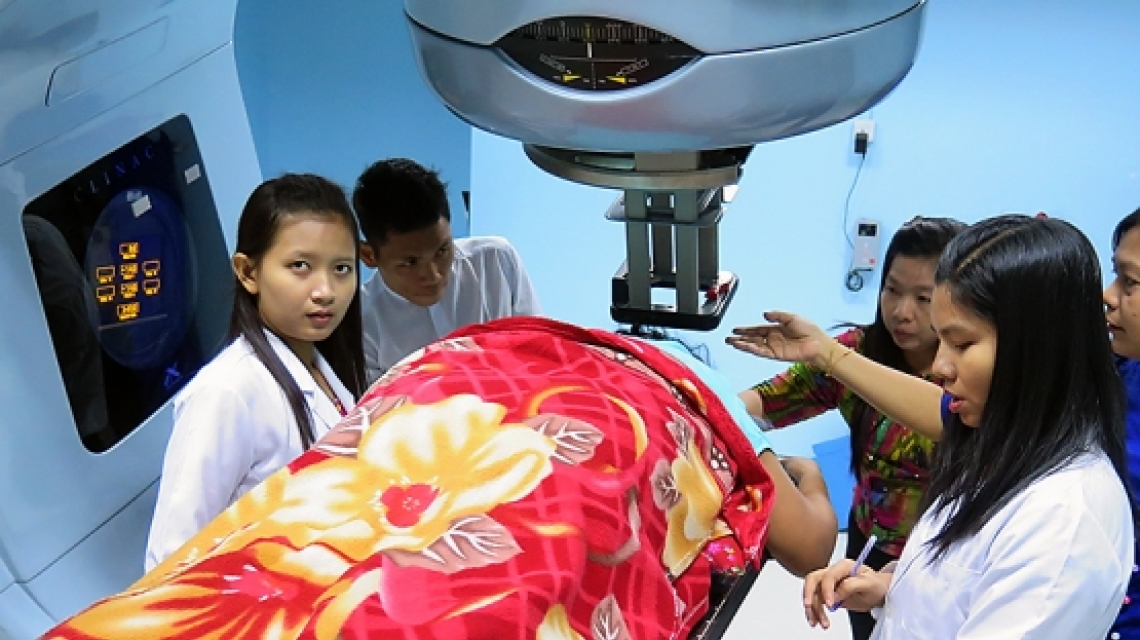World Health Day 2020 celebrates nurses and midwives’ role and dedication at a very particular time, when half of humanity is confined due to the COVID-19 pandemic. Here again, they are in the front line for us, no matter what. But how do they contribute to the IAEA’s mission and how does the IAEA support them in their work, including during the current pandemic?
“Nurses and midwives are the backbone of every health system,” said Tedros Adhanom Ghebreyesus, Director-General of the World Health Organization (WHO). There are 22 million nurses and two million midwives worldwide, accounting for half of the global health workforce and an additional nine million of them will be necessary to achieve the commitment of providing all people with access to health care by 2030.
The IAEA is currently running several hundred technical cooperation projects and coordinated research projects in the field of human health. Since its creation in 1957, the IAEA has supported countries to fight cancer, cardiovascular diseases, malnutrition and other diseases – including Ebola, Zika and now COVID-19 – with the use of nuclear and nuclear-related techniques. The IAEA provides education and training of personnel, guidelines, materials, tools and equipment, and the support of radiation safety and quality assurance. The health professionals that we train and support are part of medical teams in which nurses play a vital role.
Here are the many ways in which nurses support the IAEA’s mission – and how the IAEA in turn helps them in their work.









